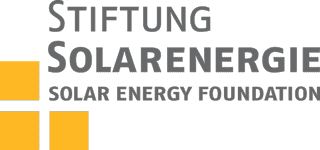Guidelines for our work
We are not concerned with one-off aid measures, but with the development of a permanent solar power supply and a local solar trade. Our development approach: help for self-help. The ten guidelines of our work:
1. Listening – implementing – accompanying
The most important principle of our work is: talking to people in rural areas, grasping their problems on the ground, developing and implementing solutions together. An essential requirement for our employees is therefore the ability and willingness to listen.
2. Development work instead of project work
Projects are limited because they have a defined end. Rural development, however, has no end, but is an ongoing process. Thinking in projects is therefore not enough. On the contrary, it encourages companies and organisations to follow the availability of project tenders – a constant stop-and-go is the result.
3. Maintenance and service
The great challenge for rural electrification is not the installation of solar panels, but the guarantee of a sustainable and reliable operation. This requires a rural network of well-trained solar technicians who also have the necessary spare parts and can guarantee a professional after-sales service.
4. Training in solar technology and management
We train solar technicians in our own training facility: in solar technology, customer service and corporate management. So that they are informed about the potential of solar technology and are able to set up their own solar company.
5. Durable and affordable
We only use solar products that are able to function permanently in terms of quality and durability in the adverse circumstances of rural areas. The goal is not to be cheap, but to make good quality affordable. To this end, we use our own microfinance, which enables even the poorest people to purchase good solar products. Poor people cannot afford cheap products.
6. Don’t give it away, finance it
We involve households and schools in the costs, for example by paying a monthly fee for maintenance and service.
We also provide small loans to schools and public institutions.
7. Creating jobs
Solar technology creates jobs in a variety of ways: in production, installation, maintenance, customer service or even in management and microfinance. In addition, solar technology in rural areas offers numerous new, solar-related income opportunities.
8. local management
Only local staff are employed in our national foundations and partner companies.
And we always use local solar companies to implement our projects. In this way, our projects promote the development of local solar crafts.
9. Holistic approach
No development is one-dimensional. Therefore, we do not focus on a single aspect, but bundle the variety of tasks (training, financing, production, installation, customer service, etc.) in an overall strategy. In this way, we ensure that not only isolated individual projects are realized, but that an overall development is made possible.
10. Social and financial sustainability
Neither for-profit nor purely non-profit work can ensure complete sustainability on its own. For-profit companies often fail to ensure social sustainability, and non-profit organisations lack financial sustainability. Our work is therefore dual and consists of both companies and aid organisations.
